-

The vaccine has saved 94 million lives – but measles is spreading again
A disease we once believed belonged to the past is now resurging in both Europe and the United States. In the shadow of growing skepticism and declining vaccination coverage, measles – which has claimed millions of lives throughout history – is making a comeback.
-

Heart Monitoring in Breast Cancer – Essential or Excessive?
Trastuzumab and related drugs have transformed breast cancer treatment and dramatically improved survival rates. But the close cardiac monitoring required during treatment can be a heavy burden for both patients and healthcare systems. Dr. Andri Papakonstantinou is working to refine how doctors identify which patients truly need intensive follow-up.
-

Charged with illegal pharmaceutical sales – alleged earnings of 23 million
For at least five years, two men allegedly carried out illegal sales of pharmaceuticals and supplements, amassing millions. They are now facing charges at Södertörn District Court in Huddinge, south of Stockholm.
-

Virology professor on the threat from X: ”The next pandemic could be worse“
The question is not if, but when we will be affected by a new unknown virus that causes yet another pandemic. Are we sufficiently prepared? "Absolutely not!", responds virologist Niklas Arnberg.
-

Astra Zeneca faces potential multimillion-dollar fines in China
Astra Zeneca could be forced to pay up up to $8 million in fines for allegedly unpaid import duties in China, as the company seeks to rebuild trust following earlier controversies.
-

Who pays for Rebecca Doe – and all of us?
Anna Törner on how easily we get used to the idea that healthcare is free - when it really is about how and who pays for it
-

AI detects tumor disease – via voice recording
A short voice recording along with facial images – both analyzed with an AI algorithm – can make it possible to detect the rare tumour disease acromegaly and initiate treatment at an early stage.
-

We desire talent to come here, but are we genuinely welcoming them?
Sweden faces significant challenges in creating a truly inclusive environment that makes international professionals feel welcome, valued, and able to build meaningful careers, writes Sarah Lidé in a column.
-

The business coach: “We need to learn from our mistakes”
The past year has been challenging for many biotech companies, with several comapanies facing financial stress and bankruptcy. To understand how entrepreneurs can navigate these tough times, Life Science Sweden spoke to Pia Keyser, a business coach
-

Anna Törner: ”If I fall seriously ill, I’ll move to Finland”
”It is both undignified and undemocratic that cancer patients must travel to Finland to uphold a façade of fairness that does not truly exist”, Anna Törner writes in a column.
-
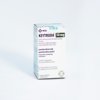
MSD discontinues two Keytruda trials
MSD has stopped two late-stage trials that tested its blockbuster immunotherapy Keytruda as a treatment for skin and lung cancer.
-

Gothenburg, the city of life science – We are ‘Little Boston’
Western Sweden is investing in life science within everything from advanced therapeutic drugs to femtech. At the same time, stakeholders are looking to other industries for inspiration and knowledge.
-

The physician at the tech giant: “Observations in the emergency room made my mind up”
When Nasim Farrokhnia was in third grade at school in Tehran, the capital of Iran, her father gave her a book about Marie Curie, which soon became her favourite book. Perhaps her interest in science was born there and then, as science and new technology have since been a constant feature of her working life. Today, she is a Healthcare Manager in Microsoft’s Western Europe team.
-

The first drugs to slow down Alzheimer’s – but what does it mean for patients?
New treatments for early Alzheimer’s are bringing hope to thousands of patients and their families. The question is, who will get the treatment, how will the right patients be found in time, and will the healthcare system’s resources be sufficient? Life Science Sweden has spoken to Swedish researchers in Alzheimer’s who voice cautious hope but also see further challenges.
-
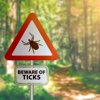
The first Lyme disease vaccine faces a delay
Pfizer and Valneva’s Lyme disease vaccine, which could be the first of its kind, is facing delays of about a year. The reason is problems at trial sites in the United States, which have forced the companies to drop half of the participants in an ongoing
-

Neanderthal genes and Nobel Prize in a popular lecture at Bioscience
An inherited gene variant from our ”evolutionary cousins” – the extinct Neanderthals – may affect how our bodies break down certain drugs. “It’s only a matter of time before we actively start screening for it,” said KI researcher Hugo Zeberg when describing the study at Bioscience 2022.
-
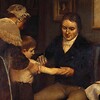
The first vaccine derived from cowpox
The British rural doctor could not forget the words of the peasant girl. Could that really be true? A couple of decades later, on 14 May 1796, he performed the world’s first smallpox vaccination, and a medical breakthrough had occurred.
-

LabDays tillbaka i Stockholm igen i april
50-tal utställare på fackmässan som är tillbaka med full kraft efter pandemin.
-
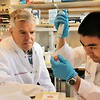
Elicera develops CAR-T against solid tumours – may become the first in the world
Today, there are five EU-approved CAR-T therapies, all focused on different types of blood cancer, but no one has yet succeeded in making the method work against solid tumours. At Gothenburg-based Elicera, they are working relentlessly to succeed in that field as well. “It is the largest field, and the potential is enormous,” says the company’s CEO Jamal El-Mosleh.
-

The route to vaccines for everyone: “We did not just sit around and wait”
The pandemic was in full swing, and no one knew when or even if a vaccine would come. At that point, the Swedish Minister of Social Affairs called with a proposal, and Richard Bergström did not hesitate. “I already had a notion that this would work,” he says in an interview with Life Science Sweden.
-

Studie: Munskydd av tyg effektivt mot virus
”Dessa bevis bör vara mer än tillräckliga för att rekommendera användningen av munskydd”, säger en av forskarna bakom studien.
-
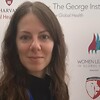
Giulia Gaudenzi: ”Key lessons from global health research”
The world will still face major challenges in the post Covid-19 pandemic, writes Giulia Gaudenzi at the KTH Division of Nanobiotechnology at Scilifelab, in a column.
-

Krönika: Collaboration across borders
-
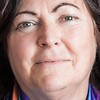
From spin-off to phase II
”The people there will basically become your new colleagues” – Carina Schmidt, former CEO of Athera, about working with different contractors.
Få tillgång till allt innehåll på Life Science Sweden
Ingen bindningstid eller kortinformation krävs
Redan prenumerant? Logga in
Gäller endast personlig prenumeration.
Kontakta oss för en företagslösning.